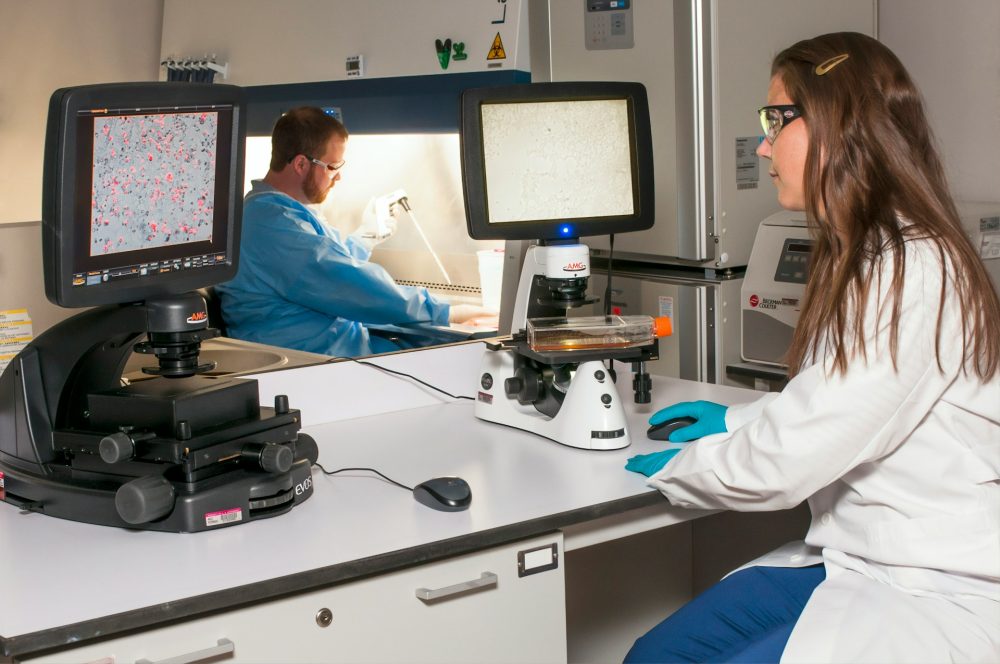Biotech
2025 Nobel Prize in Medicine Honors Discoverers of the Immune System’s “Guardians”
The 2025 Nobel Prize in Medicine was awarded to Mary E. Brunkow, Fred Ramsdell, and Shimon Sakaguchi for discovering regulatory T cells, the “guardians” that prevent the immune system from attacking the body. Their work on peripheral immune tolerance laid the foundation for new treatments for autoimmune diseases, cancer, and transplant complications.

The 2025 Nobel Prize in Medicine was awarded Monday to a US-Japanese trio for work on how the body controls the immune system, particularly the identification of “guardians of the immune system.”
American researcher Mary E. Brunkow, the 14th woman to win the Nobel Prize in Medicine, and American researcher Fred Ramsdell and Japanese researcher Shimon Sakaguchi have been awarded the prize for their “discoveries concerning peripheral immune tolerance,” the Nobel Committee announced.
Nobel Prize Recognizes Breakthrough Research on Regulatory T Cells and Immune System Control
This year’s Nobel Prize “is about how we control our immune system so that we can fight off every imaginable microbe while avoiding autoimmune diseases,” explained Marie Wahren-Herlenius, a professor at the Karolina Institute.
“The body’s powerful immune system must be regulated, otherwise it risks attacking our own organs,” the Nobel committee emphasizes. The laureates have thus “identified the guardians of the immune system, the regulatory T cells, which prevent immune cells from attacking our own bodies,” it adds.
In practice, the winners “have laid the foundations for a new field of research and led to the development of new treatments, for example for cancer and autoimmune diseases.” Their discoveries could also prevent serious complications after stem cell transplants, according to the jury.
Regulatory T cells
Shimon Sakaguchi, 74, an immunology researcher at Osaka University, made the first breakthrough in this field in 1995. At the time, many researchers were convinced that immune tolerance developed only through the elimination of potentially dangerous immune cells in the thymus, a gland located in front of the trachea, through a process called “central tolerance.”
The Japanese researcher demonstrated that the immune system was more complex. He “discovered a previously unknown class of immune cells that protects the body against autoimmune diseases,” the jury explained. “It’s an honor for me. I look forward to traveling to Stockholm in December” to receive the award in person, he told SR radio. Mary E. Brunkow, born in 1961, and Fred Ramsdell, 64, made the other key discovery in 2001, when they showed how a certain type of mouse was particularly vulnerable to autoimmune diseases.
“They discovered that these mice had a mutation in a gene they named Foxp3,” the jury said. They also demonstrated that mutations in the human equivalent of this gene cause a serious autoimmune disease called IPEX, it added. Two years later, Shimon Sakaguchi successfully linked his findings to those of Brunkow and Ramsdell: he established that the Foxp3 gene governed the development of the cells he had identified in 1995.
These cells, “now known as regulatory T cells, monitor other immune cells and ensure that our immune system tolerates our own tissues.” The Nobel Committee explained that it had not been able to reach the two Americans to announce their laureates. Mary E. Brunkow works at the Institute for Systems Biology in Seattle, an independent research organization, and Fred Ramsdell at Sonoma Biotherapeutics in San Francisco, a biotechnology company.
American research weakened
Researchers from major American institutions are once again doing well with this prize, but the budget cuts decided by President Donald Trump are fueling the debate on the risk of weakening American research in the medium term.
“There is a growing sense of uncertainty today about the United States’ willingness to maintain its leadership position in research,” observed Thomas Perlmann, secretary general of the Nobel Prize in Medicine committee, before the award ceremony.
“It doesn’t take many years of significant budget cuts to cause irreversible damage,” he says. Since January, the National Institutes of Health (NIH), the agency that oversees medical research in the United States, has cut 2,100 research grants, totaling about $9.5 billion, according to the independent Grant Watch database. The Nobel Prize consists of a diploma, a gold medal, and a check for 11 million Swedish kronor (nearly €1 million).
__
(Featured image by National Cancer Institute via Unsplash)
DISCLAIMER: This article was written by a third party contributor and does not reflect the opinion of Born2Invest, its management, staff or its associates. Please review our disclaimer for more information.
This article may include forward-looking statements. These forward-looking statements generally are identified by the words “believe,” “project,” “estimate,” “become,” “plan,” “will,” and similar expressions. These forward-looking statements involve known and unknown risks as well as uncertainties, including those discussed in the following cautionary statements and elsewhere in this article and on this site. Although the Company may believe that its expectations are based on reasonable assumptions, the actual results that the Company may achieve may differ materially from any forward-looking statements, which reflect the opinions of the management of the Company only as of the date hereof. Additionally, please make sure to read these important disclosures.
First published in LES ECO.ma. A third-party contributor translated and adapted the article from the original. In case of discrepancy, the original will prevail.
Although we made reasonable efforts to provide accurate translations, some parts may be incorrect. Born2Invest assumes no responsibility for errors, omissions or ambiguities in the translations provided on this website. Any person or entity relying on translated content does so at their own risk. Born2Invest is not responsible for losses caused by such reliance on the accuracy or reliability of translated information. If you wish to report an error or inaccuracy in the translation, we encourage you to contact us.






















